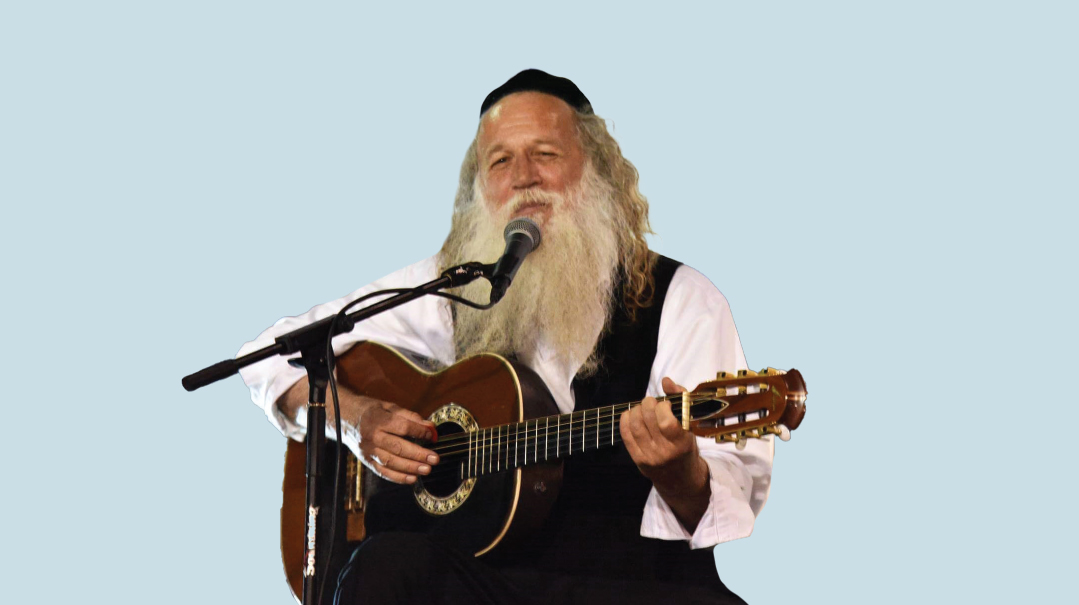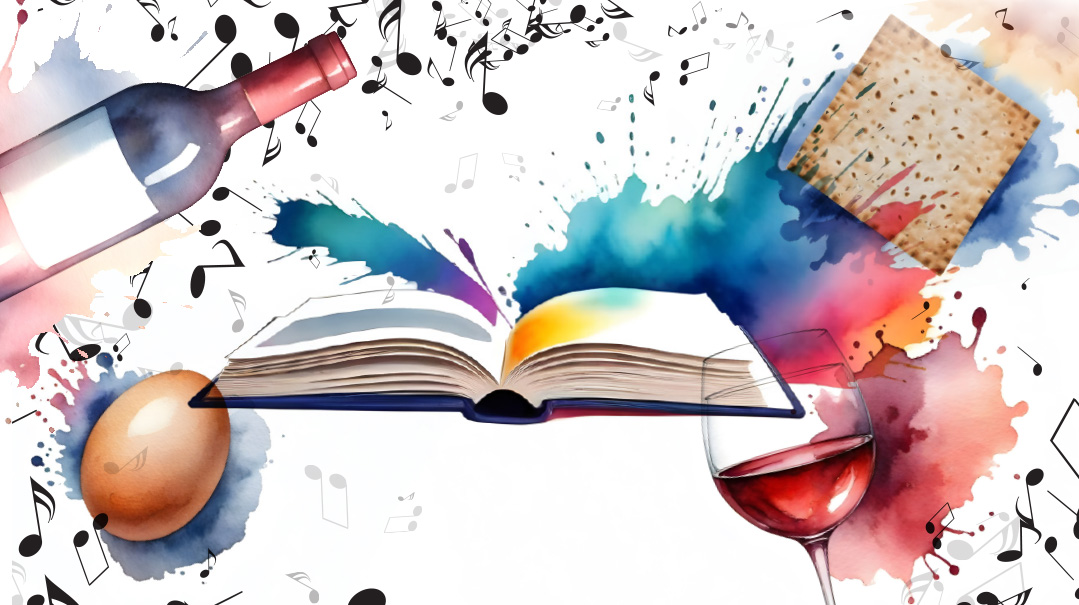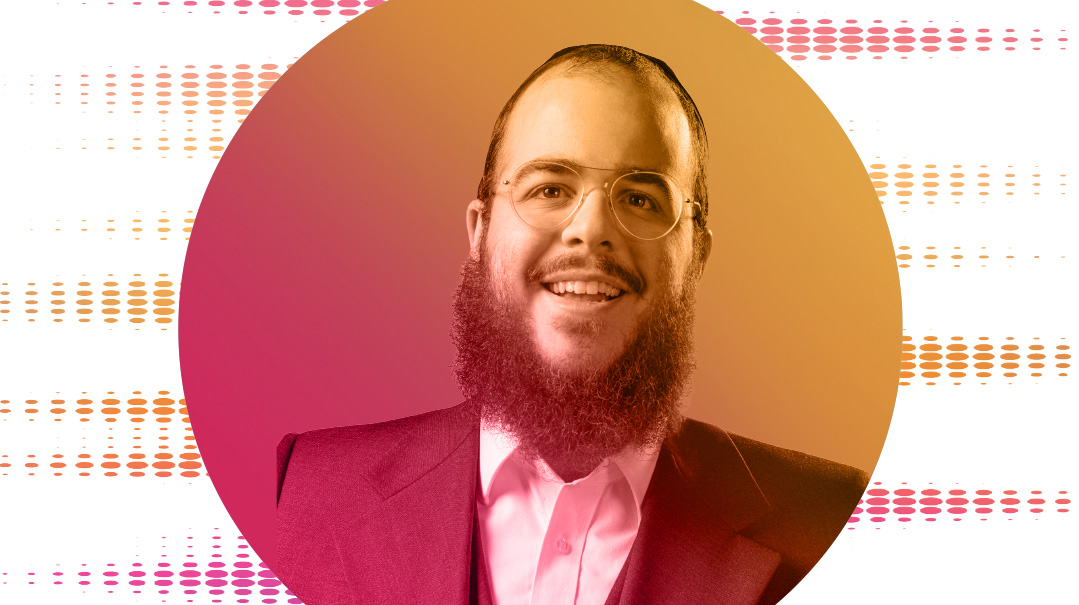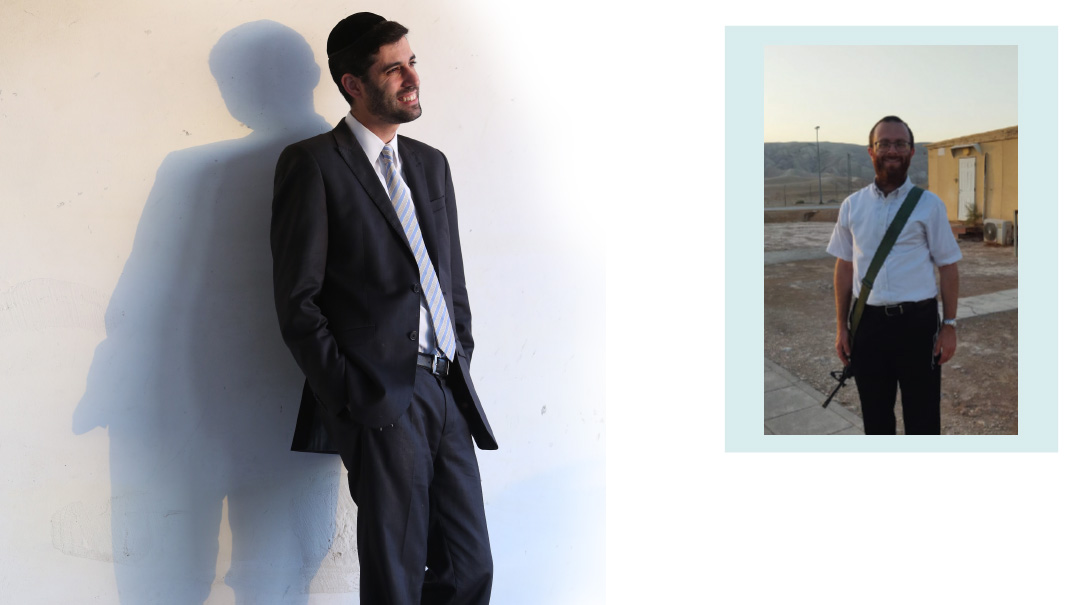Endnote: Issue 991
| December 19, 2023A perfect reflection of the artist’s own personality, an offering of music on an altar of earth — simple, organic, and emotional

Just Out
New Releases, Fresh Takes
Going It Alone
YITZCHAK FUCHS couldn’t have chosen a better name for his newly released album, MIZBACH ADAMA. It’s a perfect reflection of the artist’s own personality, an offering of music on an altar of earth — simple, organic, and emotional. Fuchs, a veteran musician perhaps best known in the frum world for “Bum bum bum … L’Hashem ha’aretz umeloah…” and the “Menucha Vesimcha” sung by MBD on Kisufim, is actually a retired silversmith who lives in the Shivtei Yisrael neighborhood of Jerusalem. He released his first album back in 1985, and Mizbach Adama is his sixth.
“No one else’s hands have touched the music on this album,” he confides. “No mixer, no arranger, no recording engineer.”
Yitzchak explains that while “the songs come down to me as a gift from Above,” he remembers the melodies, plays and records them in his home studio, then adds additional instrumentals to enhance the songs. It’s an organic artistic process on which he chooses to work alone, letting the music to speak for itself.”
Yitzchak lived in America for a period of his life (where he composed “Boro Park”), but he’s clearly happy to be back in Jerusalem, where he says everything is more inspirational and more real — and that alone nurtures creativity.
“I walk on the city streets, see the sights, the people, friends and strangers in the big mix of life which we have here in the Meah Shearim neighborhood, and music just comes to me. This is Eretz Yisrael, the center of our lives, where impressions and experiences are very vibrant. Sometimes things are stormy, but that, too, is life, and it produces music. And even in bitter times, even as the heart carries more bitterness, I believe that its song is sweeter. The songs that emerge now have all the sweetness of our hearts’ pain, so I’m trying, in my own way, to sweeten the bitterness.”
As an example, Yitzchak offers his song, “Eishet Chayil.” Most Eishes Chayil songs, he says, are full of sweetness and light. They are sung on Friday night, when the home is clean and scrubbed, the food is fragrant, and the family is at rest. The family sings Eishes Chayil and the wife beams with joy and pleasure. “But that is one side of Eishet Chayil, the Shabbat side. I see all around me another Eishet Chayil, the weekday side, the wife who is rushing, running to catch the bus to work, working, organizing, holding her home together, and feeding her children, and working and teaching. My song “Eishet Chayil” is an ode to that hardworking, sometimes harried Jewish woman who does so much. It’s a weekday Eishet Chayil, and the tune reflects that gritty side, which I see around me on the buses and sidewalks.”
As a child, Yitzchak taught himself to play the chalil, and then moved on to the melodica. At age 15, when he realized that he also wanted to sing but couldn’t do that while blowing into an instrument, he bought a guitar. Now he uses guitar as the primary accompaniment for his songs, then adds accordion, bass, tuba, and wind instruments on additional tracks. He likes his music homemade, “like sufganiot. When mothers used to make homemade ones, some were a little bigger, some a little smaller, but they were real. Today donuts are mass-produced and evenly sized, but I find mass-production a bit artificial, and I prefer organic music that goes back to the roots of Jewish music. I want it to nourish people.”
The first song on the album, “Chochma,” comes from a pasuk in Iyov. Another song is the famous quote from Yeshayahu, “Vegar ze’ev im keves… lo yarei’u velo yashchisu bechol har kodshi, umal’ah haaretz deiah es Hashem, kamayim layam mechasim — the wolf will live with the sheep, and the lion with the lamb… and the world will be filled with the knowledge of Hashem, like water covers the sea.” The powerful melody for this song came to him first, and he later added the ageless words of hope.
Story Behind the Song
Thanks No Matter What
“I once went along with a group to sing for a woman who was no longer able to speak and could communicate only via eye movements that indicated letters on a computer,” says singer and veteran composer Reb Meshulam Greenberger. After singing for a short time, he relates, the patient wrote on her screen the words, “Todah Todah.”
“We assumed she had no more energy for the music and was thanking us to signify that it was nice we came, but that we should go. When she saw that we were starting to pack up our instruments, the woman became very agitated and wrote “Todah” again and again. Soon, her husband figured out what she was trying to communicate — he explained that she was asking us to play and sing songs of “Todah”— of gratitude and thanksgiving.
It was astounding. Here we have everything working well in our bodies, yet we often complain about our aches and pains, and this woman, who had so little physical function intact, wanted to sing of thanks to Hashem. It made me ponder an idea I once heard: A vort which I had heard came into my mind: After Nishmas, we say, “Befi yesharim tisromam, bi’lshon chassidim tiskadash, u’vekerev kedoshim tishallal — In the mouths of the upright You will be exalted, by the tongues of the pious You will be sanctified, and in the midst of (or, inside of) the holy ones You will be praised.” These are in progressive order of depth within the person, because the tongue is further inward than the lips of the mouth, and the insides of a person are even deeper within him. The praise is progressively coming from deeper and deeper within. And this patient embodied that level — she could not speak with her mouth or tongue to praise Hashem, but she was praising Him from her deepest places within, with the so limited vehicles for expression she was left with. And right then and there, a niggun came to me for those words of “Befi yesharim…”
(The niggun was sung at the end of Greenberger’s “Ranenu Tzaddikim,” which he composed for a wedding of the Dushinsky chassidic court.)
Songs That Give Me Chizuk
What two lines of English lyrics do you especially connect to?
“Fast food, fast cars might be their obsession/
But I’m sittin’ here with Your prized possession/
Your holy words they never get old/
Finer than wine, golder than gold”
[from 8th Day, “I’m Sticking Around”]
Powerful lyrics, great song. When I listen to it, I can envision an exhilarated Shmueli Marcus opening a sefer and drinking in every word.
–Boruch Sholom Blesofsky
A song that transports me to a higher place
Ralph Vaughan Williams’ Symphony No. 5, third movement. When I listen to this, I hear the entire powerful, stunning piece of music as a prayer to Hashem, and it helps me get closer to Him through it.
— Leib Yaacov Rigler
(Originally featured in Mishpacha, Issue 991)
Oops! We could not locate your form.







